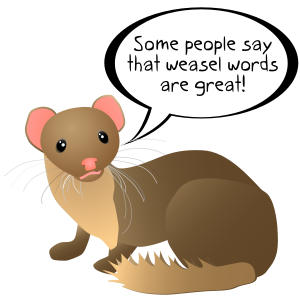
Hi All,
I'm starting this thread to facilitate the short story we were working on today.
I'm going to investigate the possibility of other people being able to blog here. In other words, you won't have to wait for me to start a thread but simply start one whenever you feel like it.
In meantime, this is for Meabh, who very kindly volunteered to write up the story and post it here.
Let's see where it goes when Mr Byrne enters the pet shop....
Update
Okay, I've worked it out. I can invite up to 100 people to blog! I've added six names so far: Aisling, Cian, Gráinne, Holly, Katie Irwin and Meabh.
Why those six, you may ask? Because theirs were the only email addresses I had on file. If you want to be included feel free to mail me.
Don't for heaven's sake post your email addy to this blog! If you do, you risk being spammed :0(
Update 2
I'm posting this on Meabh's behalf. She mailed me to say she had difficulty posting.
Feel free to copy/paste what follows and add your own line or lines to it!
We need a title too, perhaps something with "dogs" or "pets". I've suggested "Going to the Dogs".
* * *
"What would you like for your birthday?"
"A puppy!" Tom and Jackie exclaimed as one.
"What kind of puppy?" their Dad asked.
"A flying puppy," Tom said hopefully.
It was a warm summer's day. Their birthday was approaching. Despite the fact that their births were a year apart, their birthday fell on the same day. Tom was eight now and Jackie was nine.
Their faces resembled each other's: cinnamon eyes, long eyelashes and hair the colour of Sumatran teak.
Mr. Byrne laughed.
"Don't be silly, Tom, dogs can't fly."
"Ah, that's where you're wrong, Dad," piped up Jackie. "We saw one in the pet shop on O'Niels Street."
Mr. Byrne scratched his beard in puzzlement. As far as he knew, no pet shop existed in this town. He walked up O'Niels Street every day on his way to the office, and he could not recall ever seeing a pet shop.
"We'll see," he said, preparing to give them the benefit of the doubt.
"We'll ask Mam then," they said.
Mr. Byrne turned into O'Niels Street, taking his usual route to work.
There was an alley halfway down the street. He happened to glance into it. Two doors down he saw a sign: "Zarcalambar's Exotic Pets". He stopped in his tracks.
"That's odd," he said to himself. "The kids were right: there is a pet shop here."
Mr. Byrne looked at his watch. He was early. He decided he had enough time to investigate.
He ventured down to the shop. To his mild surprise, there was no window display, but a thick red velvet curtain completely drawn. He pressed it. Somewhere inside, an old-fashioned bell tolled...
Going to the Dogs
"What would you like for your birthday?"
"A puppy!" Tom and Jackie exclaimed as one.
"What kind of puppy?" their Dad asked.
"A flying puppy," Tom said hopefully.
It was a warm summer's day. Their birthday was approaching. Despite the fact that their births were a year apart, their birthday fell on the same day. Tom was eight now and Jackie was nine.
Their faces resembled each other's: cinnamon eyes, long eyelashes and hair the colour of Sumatran teak.
Mr. Byrne laughed.
"Don't be silly, Tom, dogs can't fly."
"Ah, that's where you're wrong, Dad," piped up Jackie. "We saw one in the pet shop on O'Niels Street."
Mr. Byrne scratched his beard in puzzlement. As far as he knew, no pet shop existed in this town. He walked up O'Niels Street every day on his way to the office, and he could not recall ever seeing a pet shop.
"We'll see," he said, preparing to give them the benefit of the doubt.
"We'll ask Mam then," they said.
* * *
Mr. Byrne turned into O'Niels Street, taking his usual route to work.
There was an alley halfway down the street. He happened to glance into it. Two doors down he saw a sign: "Zarcalambar's Exotic Pets". He stopped in his tracks.
"That's odd," he said to himself. "The kids were right: there is a pet shop here."
Mr. Byrne looked at his watch. He was early. He decided he had enough time to investigate.
He ventured down to the shop. To his mild surprise, there was no window display, but a thick red velvet curtain completely drawn. He pressed it. Somewhere inside, an old-fashioned bell tolled...




